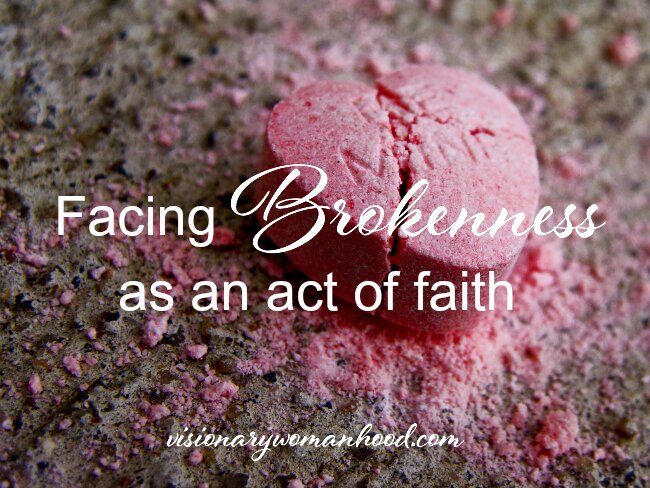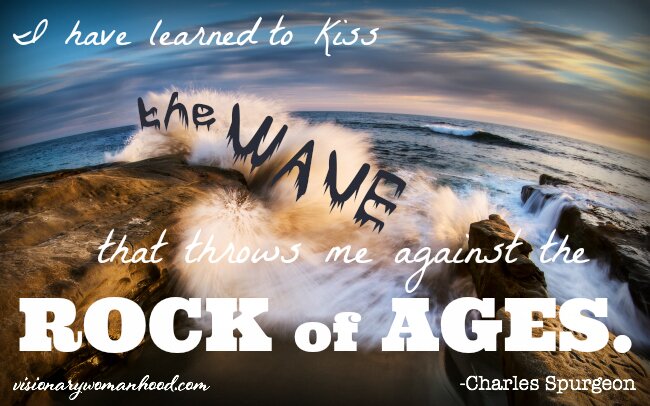November 17, 2014
Can Abusers be Christians?
November 17, 2014
Getting an Eternal Perspective in the Midst of Loss
Can Abusers be Christians?
The Cure for Shame
Think about Adam and Eve in the garden. They did the one thing God had commanded them not to do, and ate of the one tree amongst all the other trees that were full of good fruit. Everything up until this point had been good, good, good. Suddenly they realized that something was wrong with them. They were naked. Instead of taking their shame to God, they covered themselves and hid. We’ve been doing the same thing ever since, desperately trying to cover our shame, to hide it from one another. That’s why researcher and writer Brené Brown likes to say that, “Shame only needs three things to grow exponentially in our lives: secrecy, silence and judgment.” Sadly the church often follows society in offering shame-ladened people all three.
How to (and how NOT to) Help Someone Battling Cancer
Reflecting on our past and present experience with cancer, we have been blessed to have family, friends and a church family who have been wonderfully supportive. Quite often, people want to know how they can help and encourage someone going through the experience of cancer or other medical related trials. I hope that you will find this list useful as you minister to others. Here are a few things I found to be helpful and not so helpful in our journey:
Helpful: Encouraging me to trust God through our trial
More Helpful: Sharing your experience of God’s grace in your time of need and the assurance that God will be with me as well
Not Helpful: Telling me about all the people you know who also have/had cancer
Definitely Avoid: Telling me about the people you know who died from cancer

Facing our brokenness is a breathtaking act of faith in the living God; refusal to face our brokenness is a tragic denial of his existence, power, and goodness. Because the denial of painful reality comes so naturally, it is rarely labeled as sinful. Nor do we recognize how much it dishonors the God who loves […]
Explaining Domestic Abuse to Children
Once upon a time there was a home that had a dog and some other pets: a rabbit, some cats, and some hamsters. It seemed like the dog got along fairly well with most of the animals and with the people, although he did get into bad moods and growled at them for no good reason. On his good days, he’d wag his tail and play with the cats and hamsters and they ran around and had fun together. However, the dog had a thing about the rabbit. He thought rabbits were wimps and he thought it was funny to growl at the rabbit and chase him and see him scared.
October is Domestic Violence Awareness month. Here’s a little story you can tell children to explain this complex situation. Read the rest of the story HERE.
The incredible irony of the gospel for abuse victims is that Jesus suffered the most extreme form of physical abuse so that the broken could be healed (“by His scourging we are healed” [Isaiah 53:5]). In fact, this irony is so great that the dominant symbol of Christianity is an instrument of sadistic abuse—a cross. When one understands the grotesque nature of crucifixion, by which the founder of Christianity and many early Christian leaders were tortured to death, it’s amazing that Christians image their faith with a cross (1 Corinthians 2:2). It would be comparable to Jews making the symbol of Judaism a miniature crematorium they wear around their necks and place on their synagogues. The cross is the most powerful symbol imaginable of God’s ability to heal and redeem abuse.
After enduring incredible suffering, Paul declared that through all of the abuse, Christ was sweeter and stronger in his life (2 Corinthians 4:8–18; 12:10). God always desires to heal our brokenness and to use it as the very nutrient to draw us into a deeper experience of joyful intimacy with him and to give us an opportunity for more fruitful ministry to others who are also broken (Romans 8:17; 2 Corinthians 1:4–6).

Photo Credit: Justin in SD via Compfight cc
Need to clear up the confusion over whether or not there will be justice when a so-called “Christian” is chronically abusive and unrepentant? Do they get to abuse with impunity because they are a “Christian?” After all, they are covered by the blood of Christ, right? Christians sin, and there is no condemnation for those who are in Christ Jesus, so doesn’t that mean abusers who are “saved” get a free ticket to abuse and then enjoy the benefits of being a child of God?
If you’ve ever been emotionally, physically, sexually, verbally, financially, or spiritually abused on a regular basis by a co-worker, boss, spouse, parent, relative, “friend,” or pastor, OR if you know someone who has, this article is for you. Read it HERE.